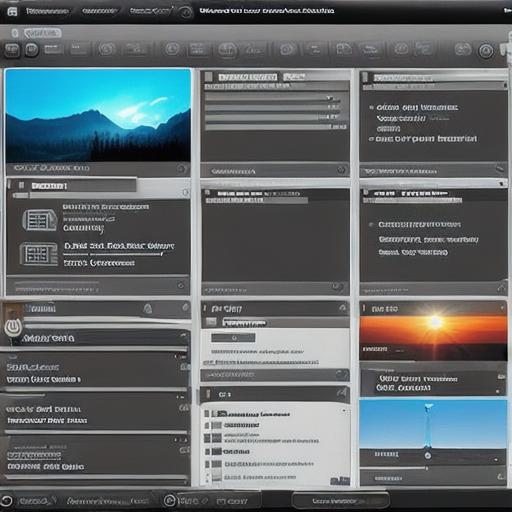As a marketer, you know how important it is to have an effective email marketing strategy. Email campaigns are a great way to reach your target audience directly and build long-lasting relationships with them. However, finding the right email marketing tool for your business can be challenging. In this guide, we’ll explore some of the top email marketing tools for businesses in 2021, along with their features, pricing, and a brief overview of how they work.
Introduction
Email marketing has come a long way since its inception. Today, there are many different tools available to help you create and manage your email campaigns. With so many options to choose from, it’s easy to feel overwhelmed when trying to decide which tool is right for your business. In this guide, we’ll take a closer look at some of the top email marketing tools available in 2021, along with their features, pricing, and real-life examples of how they can be used to improve your email marketing efforts.
Importance of Email Marketing
Before we dive into the top email marketing tools for businesses in 2021, let’s first discuss why email marketing is so important. Email marketing has a number of advantages over other forms of digital marketing, including:
- High ROI: According to Campaign Monitor, email marketing has an average return on investment (ROI) of 4,200%. This is significantly higher than many other forms of digital marketing.
- Targeted Reach: With email marketing, you can target your message directly to the people who are most likely to be interested in it. By segmenting your email list based on factors such as demographics, interests, and behavior, you can ensure that your emails are delivered to the right people at the right time.
- Cost-Effective: Email marketing is a cost-effective way to reach your target audience. Unlike paid advertising, email marketing doesn’t require a large budget to be successful. With the right tools, you can create and send high-quality emails to your subscribers without breaking the bank.
- Building Relationships: Email marketing is a great way to build long-lasting relationships with your customers. By regularly sending valuable content and engaging with your subscribers, you can establish trust and loyalty with your audience.
A PLACE FOR A PICTURE #2
Comparison of Top Email Marketing Tools in 2021
Now that we’ve discussed the importance of email marketing, let’s take a closer look at some of the top email marketing tools available in 2021. Each of these tools has its own unique features and pricing plans, so it’s important to do your research before making a decision.
1. Mailchimp
Mailchimp is one of the most popular email marketing tools on the market. With over 15 million customers, Mailchimp offers a wide range of features to help you create and manage your email campaigns. Some of the key features of Mailchimp include:
- Drag-and-drop email editor: Mailchimp’s drag-and-drop email editor makes it easy to create professional-looking emails without needing any coding skills.
- List segmentation: With Mailchimp, you can easily segment your email list based on factors such as demographics, interests, and behavior. This allows you to send targeted emails that are more likely to resonate with your subscribers.
- Automated workflows: Mailchimp offers a range of automated workflows that can help you save time and streamline your email marketing efforts. For example, you can set up an automated welcome sequence that sends a series of emails to new subscribers.
- Integrations: Mailchimp integrates with a wide range of third-party tools, including Shopify, WooCommerce, and Squarespace. This makes it easy to integrate your email marketing efforts with other aspects of your business.
Pricing: Mailchimp offers a free plan for up to 2,000 subscribers, as well as paid plans starting at $9.99 per month for up to 10,000 subscribers.
2. Campaign Monitor
Campaign Monitor is another popular email marketing tool that offers a range of features to help you create and manage your email campaigns. Some of the key features of Campaign Monitor include:
- Responsive design: With Campaign Monitor, you can create emails that look great on any device or screen size. This ensures that your subscribers receive a seamless experience, regardless of where they are accessing your emails from.
- List segmentation: Like Mailchimp, Campaign Monitor allows you to easily segment your email list based on factors such as demographics, interests, and behavior. This helps you send targeted emails that are more likely to resonate with your subscribers.
- Automated workflows: Campaign Monitor offers a range of automated workflows that can help you save time and streamline your email marketing efforts. For example, you can set up an automated welcome sequence that sends a series of emails to new subscribers.
- Integrations: Campaign Monitor integrates with a wide range of third-party tools, including Shopify, WooCommerce, and Squarespace. This makes it easy to integrate your email marketing efforts with other aspects of your business.
Pricing: Campaign Monitor offers a free plan for up to 500 subscribers, as well as paid plans starting at $29 per month for up to 2,500 subscribers.
3. Constant Contact
Constant Contact is a popular email marketing tool that is designed specifically for small businesses. Some of the key features of Constant Contact include:

- Drag-and-drop email editor: Like Mailchimp and Campaign Monitor, Constant Contact offers a drag-and-drop email editor that makes it easy to create professional-looking emails without needing any coding skills.
- List segmentation: Constant Contact allows you to easily segment your email list based on factors such as demographics, interests, and behavior. This helps you send targeted emails that are more likely to resonate with your subscribers.
- Automated workflows: Constant Contact offers a range of automated workflows that can help you save time and streamline your email marketing efforts. For example, you can set up an automated welcome sequence that sends a series of emails to new subscribers.
- Integrations: Constant Contact integrates with a wide range of third-party tools, including Shopify, WooCommerce, and BigCommerce. This makes it easy to integrate your email marketing efforts with other aspects of your business.
Pricing: Constant Contact offers a free plan for up to 100 subscribers, as well as paid plans starting at $45 per month for up to 500 subscribers.
4. Drip
Drip is an email marketing tool that is designed specifically for e-commerce businesses. Some of the key features of Drip include:
- Automated workflows: Drip offers a range of automated workflows that can help you save time and streamline your email marketing efforts. For example, you can set up an automated welcome sequence that sends a series of emails to new subscribers.
- List segmentation: Like the other tools on this list, Drip allows you to easily segment your email list based on factors such as demographics, interests, and behavior. This helps you send targeted emails that are more likely to resonate with your subscribers.
- A/B testing: Drip offers A/B testing capabilities that allow you to test different versions of your emails to see which ones perform better. This can help you optimize your email campaigns for maximum impact.
- Integrations: Drip integrates with a wide range of third-party tools, including Shopify, WooCommerce, and BigCommerce. This makes it easy to integrate your email marketing efforts with other aspects of your business.
Pricing: Drip offers a free plan for up to 100 subscribers, as well as paid plans starting at $19 per month for up to 2,500 subscribers.
5. ConvertKit
ConvertKit is an email marketing tool that is designed specifically for content creators and bloggers. Some of the key features of ConvertKit include:
- List segmentation: Like the other tools on this list, ConvertKit allows you to easily segment your email list based on factors such as demographics, interests, and behavior. This helps you send targeted emails that are more likely to resonate with your subscribers.
- Automated workflows: ConvertKit offers a range of automated workflows that can help you save time and streamline your email marketing efforts. For example, you can set up an automated welcome sequence that sends a series of emails to new subscribers.
- A/B testing: ConvertKit offers A/B testing capabilities that allow you to test different versions of your emails to see which ones perform better. This can help you optimize your email campaigns for maximum impact.
- Integrations: ConvertKit integrates with a wide range of third-party tools, including WordPress, Shopify, and WooCommerce. This makes it easy to integrate your email marketing efforts with other aspects of your business.
Pricing: ConvertKit offers a free plan for up to 1,000 subscribers, as well as paid plans starting at $29 per month for up to 3,000 subscribers.
Summary
Choosing the right email marketing tool for your business can be overwhelming, but by understanding the key features and pricing plans of each tool, you can make an informed decision that is best for your business needs. Remember to do your research and test out different tools before making a final decision to ensure that you select the one that works best for you and your business.




